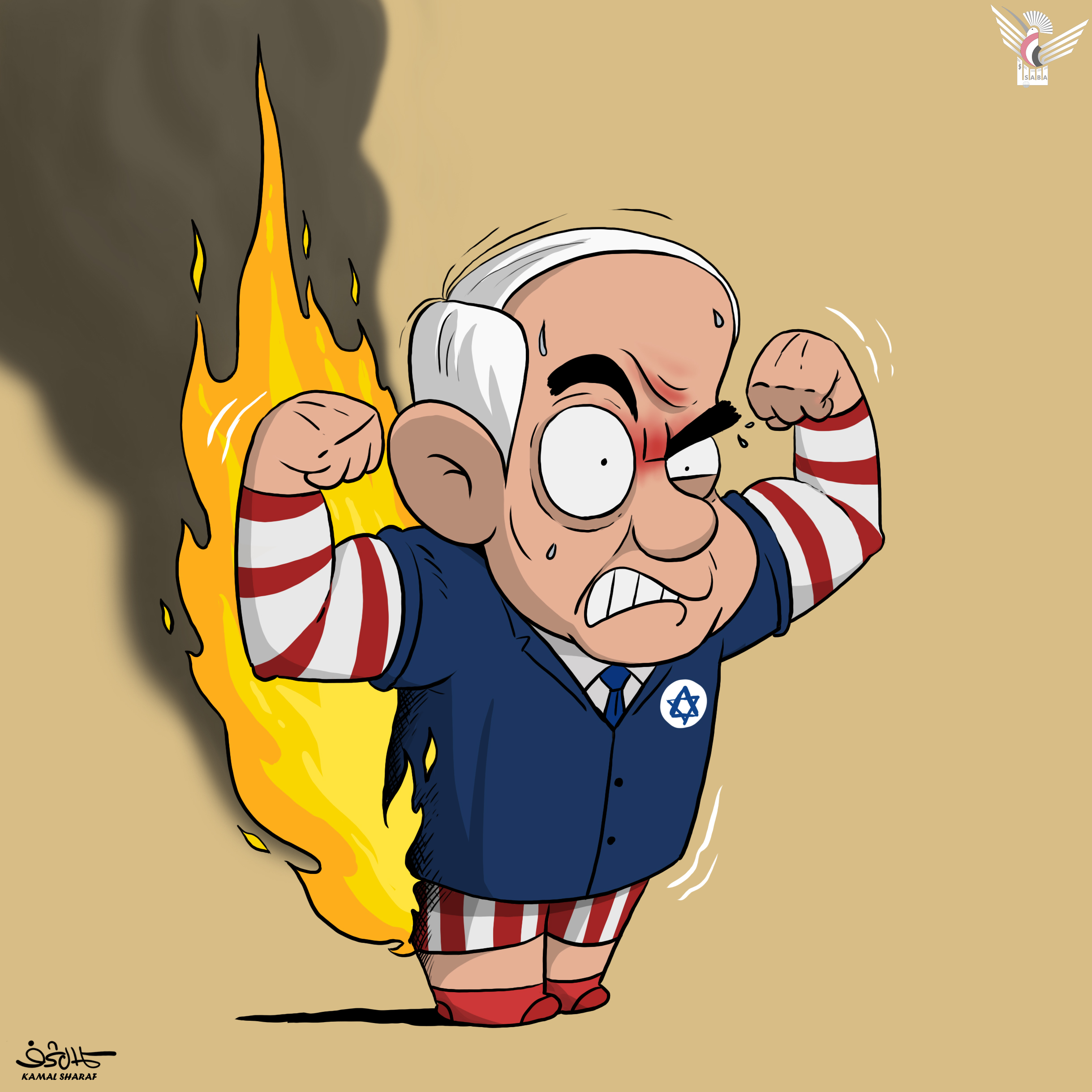Sana'a, Saba:
A memorial event was held on Wednesday in the capital Sana'a to honor the martyr of the Palestinian nation and resistance, Yahya al-Sinwar, head of the Political Bureau of the Islamic Resistance Movement Hamas.
Dr. Abdulaziz bin Habtoor, a member of the Supreme Political Council, delivered a speech on behalf of Mahdi Al-Mashat, President of the Supreme Political Council.
Bin Habtoor welcomed all participants and attendees, including state leaders, the ambassador of the Islamic Republic of Iran, and the representative of Hamas in Yemen.
The event reflected a strong collective commitment to the Palestinian cause and showcased the solidarity among those present in supporting the resistance against oppression.
During the memorial event for martyr Yahya al-Sinwar, Dr. Abdulaziz bin Habtoor emphasized that the gathering reflects Yemen's unwavering position in support of the resistance movement at both regional and global levels, particularly against the American-Zionist axis.
He quoted the leader of the revolution, Sayyed Abdulmalik al-Houthi, stating, "From the capital Sana'a, we reiterate our commitment since the first day of al-Aqsa flood: we will not abandon our people and brothers in Palestine, especially in the Gaza Strip, and we will stand by them with all our strength."
Dr. bin Habtoor further noted that Yemen has successfully fortified its strategic maritime positions, stating, "We have closed Bab al-Mandab, the Red Sea, the Gulf of Aden, the Arabian Sea, and extended our reach to the Indian Ocean, forming an impregnable barrier against the American-British Zionist enemy and their vessels."
In his address during the memorial for Yahya al-Sinwar, a member of the Supreme Political Council underscored the significant role of the resistance axis extending from Sana'a to Palestine, Lebanon, Syria, Iraq, and Iran. He criticized those who have turned a blind eye to the plight of the people in Gaza, suffering from hunger and under the assault of U.S.-supplied weapons wielded by the Zionist entity.
He pointed out that several Arab regimes, which have normalized relations with Israel, are actively coordinating militarily and security-wise with the Zionist enemy during its aggression against Gaza and Lebanon. This includes what he termed the "Palestinian Authority" in the occupied West Bank, which he claimed has aligned itself with the oppressor.
The council member remarked on the irony of Arab nations siding with those who have usurped land and committed atrocities against innocent civilians, stating, "It is one of the wonders and farces of our time that those once affiliated with the Arab cause now stand with those who destroy lives and perpetrate barbaric acts against children, women, and the elderly."
During the memorial event for martyr Yahya al-Sinwar, speakers reaffirmed their commitment to supporting the resistance in Palestine and Lebanon. A representative noted that everyone in the capital of freedom and dignity, Sana'a, stands united behind the leader of the revolution to ensure that Yemen remains a steadfast part of this resistance axis until victory is achieved.
Prime Minister Ahmed al-Rahawi highlighted the significance of honoring the great Mujahid leader Yahya al-Sinwar, who dedicated his life to resisting the Zionist-American occupation. He remarked that al-Sinwar’s 25 years of imprisonment only strengthened his resolve to continue fighting against oppression.
The Prime Minister emphasized that the ongoing Zionist aggression has crossed all boundaries, reflecting its arrogance and brutality, and reiterated the commitment to resist until the last moment.
Prime Minister al-Rahawi emphasized the unique plight of the Palestinian people, who remain the only nation under occupation in the world. He praised their resilience and steadfastness, led by courageous fighters like the martyr al-Sinwar.
The Prime Minister noted that the "Flood of Al-Aqsa" operation, orchestrated by Commander al-Sinwar, marked a pivotal moment in the struggle against Zionism, unlike anything seen since the occupation of Arab lands.He highlighted the operation's success in instilling fear among Israeli leaders and citizens, stating that it has shaken their sense of security and will ultimately lead to the failure of all Zionist and American plans.
Furthermore, he underscored that the Palestinian fight is not only against Israeli forces but also against the United States, which plays a crucial role in the oppression of the Palestinian people. Daily acts of violence, displacement, and deprivation of essential resources continue to plague them, all occurring amidst the silence of billions of Arabs and Muslims.
First Deputy Prime Minister the Islamic scholar Mohammed Meftah emphasized al-Sinwar’s role as a symbol of courage and leadership. He noted that al-Sinwar represented a profound legacy of manhood and redemption, inspiring future generations. Miftah described the impact of the Battle of the "Flood of Al-Aqsa," which unveiled the harsh realities of the Zionist and American colonial project.
He lamented that the Islamic nation lost a significant leader with al-Sinwar’s martyrdom, calling him a beacon of freedom and dignity in the face of ongoing atrocities in Palestine. He condemned the genocide and displacement occurring under American support, urging a united front against these injustices.
Muftah underscored the importance of following the path of great martyrs, asserting that al-Sinwar, who dedicated his life to the defense of the Islamic nation, desired martyrdom in battle rather than a quiet death. He highlighted Sinwar's leadership during the pivotal "Al-Aqsa flood" battles, marking him as an enduring icon of resistance.
Moath Abu Shamala, representing Hamas in Sana'a, acknowledged the sacrifices made by those who choose the path of martyrdom, asserting that it leads to divine recognition. He praised Sinwar as a leader who spent six decades in service to his cause, emphasizing the inspiration his legacy provided to the resistance movement.
Abu Shamala expressed gratitude for the solidarity shown by the Yemeni people, reaffirming that Yemen’s participation in the "Flood of Al-Aqsa" reflects a refusal to submit to oppression. He reiterated the commitment to continue the struggle for liberation, justice, and the restoration of Palestine.
The memorial underscored the deep ties between Yemen and Palestine, emphasizing a collective resolve to resist and strive for freedom.

| more of (Local) |




